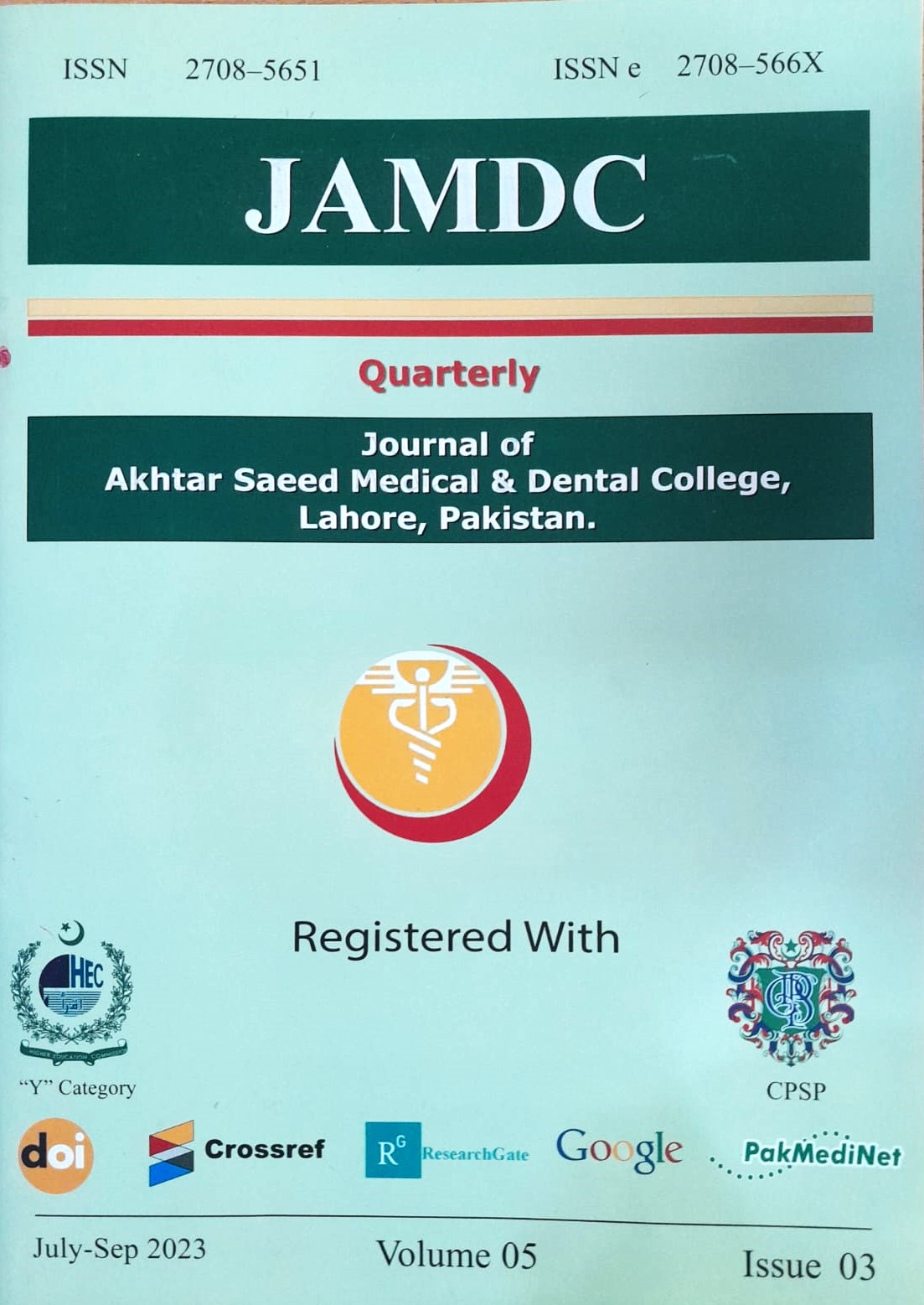REASONS OF REFUSING COVID-19 VACCINATION AMONG ADULT POPULATION ATTENDING A TERTIARY CARE HOSPITAL OF LAHORE, PAKISTAN: A CROSS-SECTIONAL STUDY
Main Article Content
Abstract
Background:
Despite widespread mass communication strategy, a considerable proportion of the adult population hesitates towards COVID-19 vaccination. This study aimed to describe reasons for refusing COVID-19 vaccination among adults attending a tertiary care hospital in Lahore, Pakistan.
Material and Methods:
This descriptive, cross-sectional study was undertaken among patients and attendants presenting to OPDs of a Tertiary care hospital in Lahore from January through June 2022. Four hundred and thirteen unvaccinated individuals aged 18 years and above were interviewed about fear of complications, misconceptions, peer and family influences and vaccine administration issues. Pearson's Chi-squared test was used to examine the difference in proportions using SPSS version 25.
Results:
Of 413 participants, 276 (66.8%) were males, and 76% were aged between 20-50 years, with one-third having completed primary school only. Despite higher awareness (83%) about COVID-19 vaccines, more than 50% of females showed concern about fear of long- term health effects. In contrast, according to males, non-immunization was due to family and peer influences (53%). More than half of the participants expressed doubt on predictive protection against COVID. We did not find any statistical association between fear of side effects, misconceptions, peer pressure and vaccination availability themes with age, gender, education and occupation (p>0.05).
Conclusion:
There are still gaps in accessibility, coverage and acceptability of the COVID-19 vaccine and in addressing the concerns among men and women of low socioeconomic population strata in Lahore about its effectiveness, long-term effects and administration

